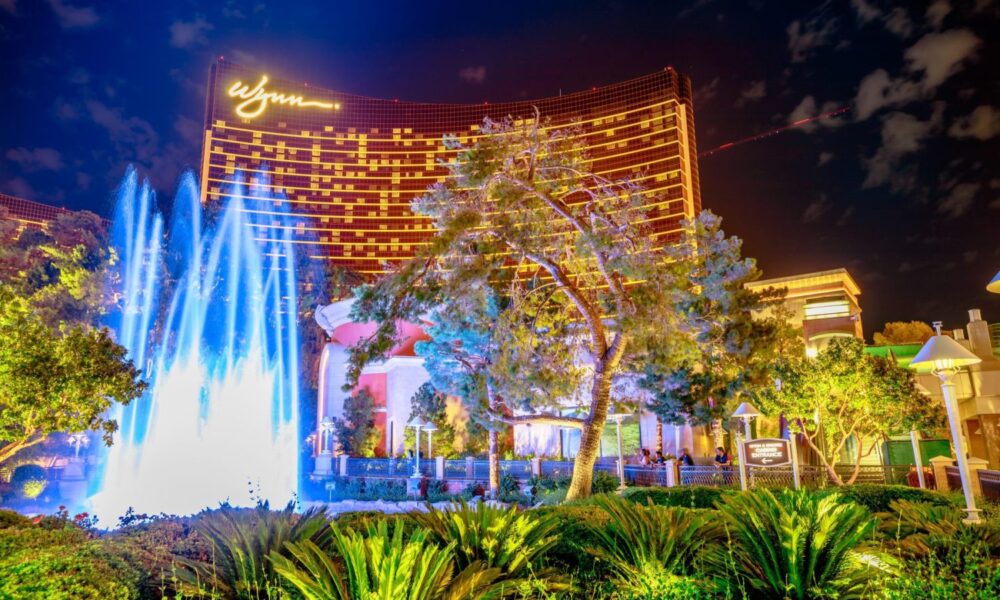Wynn Resorts’s catering to luxury customers with high room rates in Las Vegas has helped the company fare better than its competitors, but its CEO said it offers value for the price and doesn’t gouge customers like some other Strip properties have done.
Wynn, the last Las Vegas operator to report its Strip results, announced Thursday that its two Las Vegas properties reported a $13.6 million increase in operating revenues and EBITDA growth on a hold-adjusted basis of 3% to $111 million against a difficult comparison.
CEO Craig Billings said Wynn Las Vegas continued to see “notable market-share gains” in the quarter and demand was healthy, with solid increases in both drop and handle, while casino revenue rose 10%. Hotel revenue, flat at $187 million, was part of their plan to accept lower occupancy to preserve elevated room rates.
Billings said the property set an all-time EBITDA record in August and that business in the fourth quarter has seen continued momentum; drop and handle are both up compared to a year ago. There’s also been growth in revenue per room and retail sales.
“With the fourth quarter off to a strong start, we’re turning our attention to FI,” Billings said, “once again pricing it at a significant premium to the market. Looking further out, group and convention business looks strong heading into 2026 and on pace to grow both room rates and nights over 2025.”
The Encore Tower room remodel in the spring will cost the operator about 80,000 room nights in 2026. Billings called it “a headwind in earnings. “While macroeconomics and geopolitical uncertainty remain a consideration, we remain positive on our outlook for our business in Las Vegas.”
To Billings, what happened with the Las Vegas visitation slowdown over the summer has been “publicized to the extreme,” but Wynn focused on their rates over increasing occupancy and staffed their buildings accordingly.
“Wynn Las Vegas isn’t necessarily built for visitors coming on a tight budget,” Billings said. “But that type of customer is unrelenting when it comes to value for their dollar. Their expectation of that perceived value couldn’t be higher.
“We’re unapologetic about premium pricing. We don’t ambush patrons with unexpected charges. Our minibar prices are a fraction of others in the market. We held out as long as we possibly could in charging for parking and began to do so only when we were at risk of becoming the neighborhood parking lot. Even now, hotel guests park free. Our customers pay a premium room rate, but we don’t want them to feel nickel and dimed. That’s contrary to creating high perceived value. Because of that, we haven’t seen the pushback in pricing that others in the market might have or we’ve seen on social media.”
While the headlines focus on Las Vegas being so expensive, Billings said the city is full of low-priced options and value.
“It’s been a town where one could escape their worries for three days and experience world-class service and beautiful environments — in other words, a town of high perceived value. Any erosion of that perceived value will manifest in a mantra against the cost of the experience itself. But read through the underlying messages and you’ll see much more than it being the value per dollar and not the dollar itself. That’s just not us, and we haven’t seen that pushback. If rates compressed 50% in Las Vegas tomorrow, would we feel that? Sure we would. But we’ll always be at a pricing premium and the reason is we deliver a whole lot of value.”
Of high-end gaming, mass gaming, and average daily room rates, the latter two are driven by visitation, Billings said. High-end gaming, meanwhile, is about the equity markets, host-to-customer relationships, and services in the building.
“Segments of (Wynn’s) business benefit from incremental visitation to Las Vegas,” Billings said.
At Encore Boston Harbor, Billings said Wynn generated $58 million in EBITDA and that the business remains solid, with slot revenues growing 5% year-over-year. Demand in October remained healthy, with both drop and handle above 2024’s.
Macau was aided by higher-than-normal VIP hold. It had $308 million in EBITDA, including $23 million of VIP hold. Mass volumes were strong, up 15% year-over-year, despite weather disruption at the end of the quarter, Billings said.



